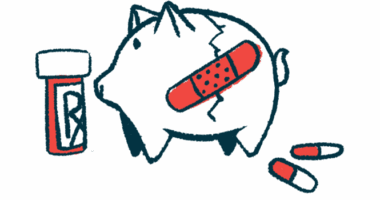My late husband left behind a legacy of goodness
Despite his terminal condition, Aubrey demonstrated perseverance, resilience

On Sunday, March 19, I appeared on New Zealand’s 1News to discuss my journey as a caregiver to my late husband, Aubrey, who had hereditary ATTR amyloidosis. I now face the reality that any of our four children could have the genetic mutation that causes the terminal disease.
It was important for me to highlight that rare diseases affect real families, many of whom, like us, suffer in silence due to a lack of treatment options, awareness, and targeted support.
For years, I was knee-deep in the demands of caregiving and, at the same time, frantically trying to secure treatment for my dying husband. As a patient advocate for New Zealand’s amyloidosis community, I recognize we were victims of our location. If we were living in a country where proper support and treatment are more readily available, we could have possibly slowed or stalled the downward spiral of Aubrey’s condition.
A life well lived
Looking back more than a year after his passing, I acknowledge that, despite the pain, suffering, and loss we endured, Aubrey’s goodness has left a legacy.
His perseverance showed us that no matter how bad things get, we can choose to focus on the positives. The people who love us and the community that supports us are reason enough to fight to live. Aubrey’s resilience in the face of his terminal condition reminded the people around him to treasure every second. And the way he charitably gave his limited time to loved ones taught us that life is not about what we can get, but what we can give.

Jaime and Aubrey Christmas enjoy a moment together during a family trip to Disney World, prior to Aubrey’s diagnosis in 2013. (Courtesy of Jaime Christmas)
I’m grateful to have had 26 years of marriage to a man who was not perfect but tried his best to do what was right. His loss left a vacuum in our lives, but that space is already filling up with gratitude and appreciation for a life well lived.
Note: FAP News Today is strictly a news and information website about the disease. It does not provide medical advice, diagnosis, or treatment. This content is not intended to be a substitute for professional medical advice, diagnosis, or treatment. Always seek the advice of your physician or other qualified health provider with any questions you may have regarding a medical condition. Never disregard professional medical advice or delay in seeking it because of something you have read on this website. The opinions expressed in this column are not those of FAP News Today or its parent company, Bionews, and are intended to spark discussion about issues pertaining to familial amyloid polyneuropathy.








Leave a comment
Fill in the required fields to post. Your email address will not be published.